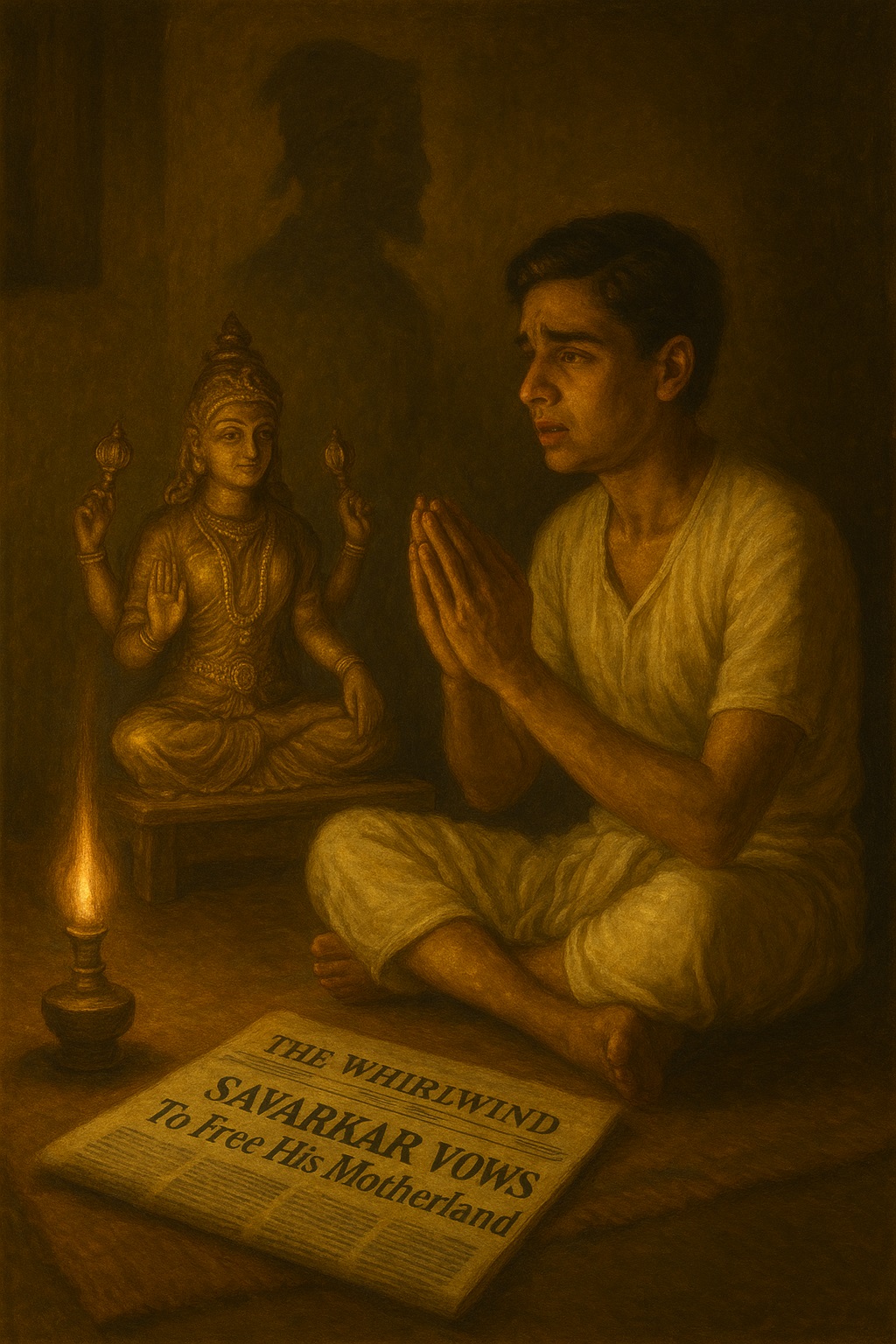One night, in the town of Bhagur, a boy stood before a statue of the armed Goddess Durga. This boy was Vinayak Damodar Savarkar, and the vow he took that night would ignite a revolutionary desire to stand up against British colonial rule in India.
The immediate spark was the execution of the Chapekar brothers – Damodar, Balakrishna, and Vasude – who had assassinated British Plague Commissioner Rand in Pune. Their hanging sent shockwaves across the Bombay Presidency, leaving behind not just controversy, but also legend. To many, they were misguided youths; to Savarkar, they were martyred heroes. Barely sixteen, he was enraged by the press that dismissed their sacrifice and deeply moved by their courage—chanting verses from the Gita even as they faced the gallows.
Unable to bear the anguish, Vinayak turned to the divine. He approached the idol of the eight-armed Bhawani Durga in his ancestral home – his family deity – and fell at her feet. In the solitude of night, he made a vow: to dedicate his life to the freedom of his motherland, to fulfill the “incomplete mission” of the Chapekars, and to drive the British out of India. He declared that he will drive out the Britishers from his beloved motherland and make my country free and great once again.
It was a vow that echoed the legendary pledge of Chhatrapati Shivaji Maharaj, who had sworn to overthrow foreign rule at the temple of Rohideshwar at the same age. For Savarkar, this was not symbolism – it was destiny.
That fateful night marked a turning point. His mind, already inquisitive and stirred by injustice, became anchored to a mission. The seed of revolution was sown.
In the years that followed, his actions mirrored that youthful oath. He wrote fervently, composing Durga Dasa Vijay, a devotional text dedicated to the goddess in which he asked for strength to stay true to his pledge. When the police raided their home, his comrades even burned copies of it to protect their cause. He also wrote the play Veershriyukta, centered on the Chapekars, and the widely recited poem Chapekarancha Phatka, which stirred nationalist sentiments across Maharashtra. His voice, each time he recited it, would tremble with emotion, anger, and defiance.
Looking back, that solitary night at the feet of Durga was no ordinary moment. It was a sacred and decisive flashpoint. It was the night Savarkar became a revolutionary!
Sources:
GODBOLE, Vasudev Shankar. 2004. Rationalism of Veer Savarkar. Itihas Patrika Prashan: Thane/Mumbai.
KEER, Dhananjay. 1988. Veer Savarkar. Third Edition. (Second Edition: 1966). Popular Prakashan: Bombay (Mumbai).
SAMPATH, Vikram. 2019. Savarkar (Part 1). Echoes from a forgotten past. 1883-1924. Penguin Random House India: Gurgaon.


Leave a Reply